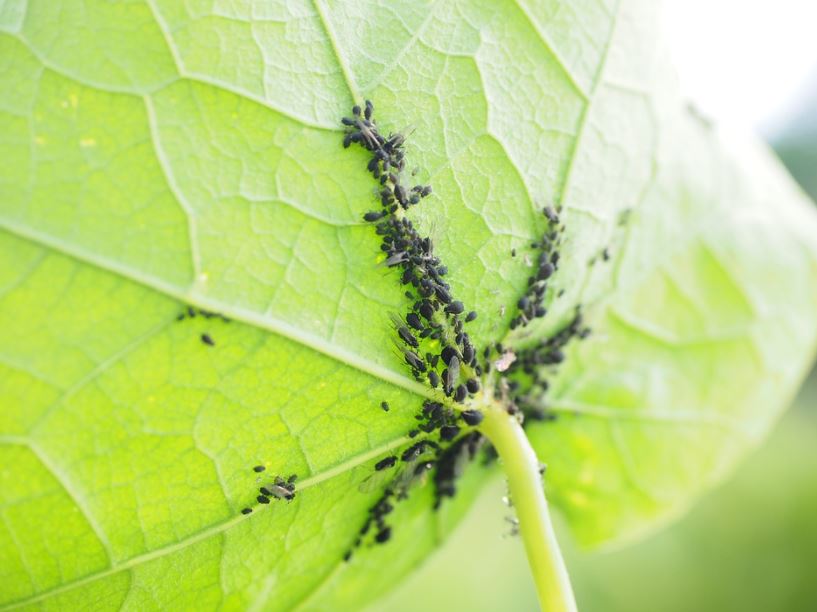Just like baking soda, white vinegar or soda crystals, black soap is well known to fans of ecological household products. It can replace Marseille soap to make a very efficient home laundry. It must be said that this soap rich in vegetable oil (usually olive oil) is very versatile and can be used to clean, scour and remove stains from all surfaces in the home. However, it can also be very useful for the care and maintenance of outdoor spaces. So, to change from the simple maintenance of the house or the hammam, discover the best uses of black soap in the garden, the orchard or the vegetable garden.
Whether it is to have a clean garden or to chase away undesirable insects that are sometimes very destructive, you will quickly realize that this multi-purpose product is an essential for the gardener.
Contents
1) Use black soap as an insecticide for the garden
If you are used to gardening using ecological and biodegradable tricks, you can’t miss it! Black soap has very powerful insecticidal properties. It allows you to get rid of harmful insect larvae, but also to remove the honeydew deposited on the plants. Generally, it is mentioned in the fight against aphids. However, it can also be used to fight mealy bugs, green bugs, leafhoppers, psyllids, whiteflies, thrips or red spiders on your plants. It can also be used to fight ants, as it is a very good ant killer.

To do this, take five tablespoons of liquid black soap and dilute it in a liter of hot water. (This ensures a better dilution.) You can also decide to use rainwater that you will heat up. Then you can simply pour it into a spray bottle and spray it on the infested plants once the mixture has cooled. Focus on the tops and bottoms of the leaves. Ideally, use in the morning or late afternoon rather than in the afternoon sun to avoid burning vegetable plants and other shrubs. Also avoid rainy days.
Reminder: 2 tablespoons of liquid black soap are the equivalent of 1 teaspoon of soft soap.
2) For the care of sick plants
Black soap also has antibacterial and antiseptic properties. Thanks to this, it can be used for other purposes than the fight against a given insect. By using these virtues, you will be able to cure the diseases of your plants without using any chemical treatment. It is particularly excellent used as a wetting agent to eliminate cryptogamic diseases. The wetting agent allows an easier dispersion and penetration of water-based liquid treatments. It helps the treatment to adhere well to the plant and makes it less sensitive to leaching.

For example, it can be used in a 2% dilution of Bordeaux mixture. Otherwise, you can fight against mildew with a mixture based on 2.5 g of baking soda and a teaspoon of liquid black soap diluted in a liter of water. Its richness in vegetable oils allows it to leave a protective greasy film on the plants. Black soap also plays a preventive role. It allows to protect the plants by using it once or twice a month.
3) Black soap, a cleaner… for garden plants
When fruit trees and other rose bushes are affected by fumaginia (a kind of black mold common on plants favored by aphids), black soap diluted in warm water can be used to clean the foliage and other parts covered with carbon deposits. With proper cleaning, you can prevent the leaf drop inherent in this infestation.
4) A cleaner for outdoor tools and surfaces

With black soap, you can safely clean patio paving, garden furniture, slates and stone surfaces that are often very dirty. It is also an excellent choice for cleaning and maintaining gardening tools. Since they are often covered with stains from dirt, sap or tough grass, black soap is never too much. Tools can also spread disease from one plant to another if you are not careful.

